Six Alums Share COVID-19 Experiences
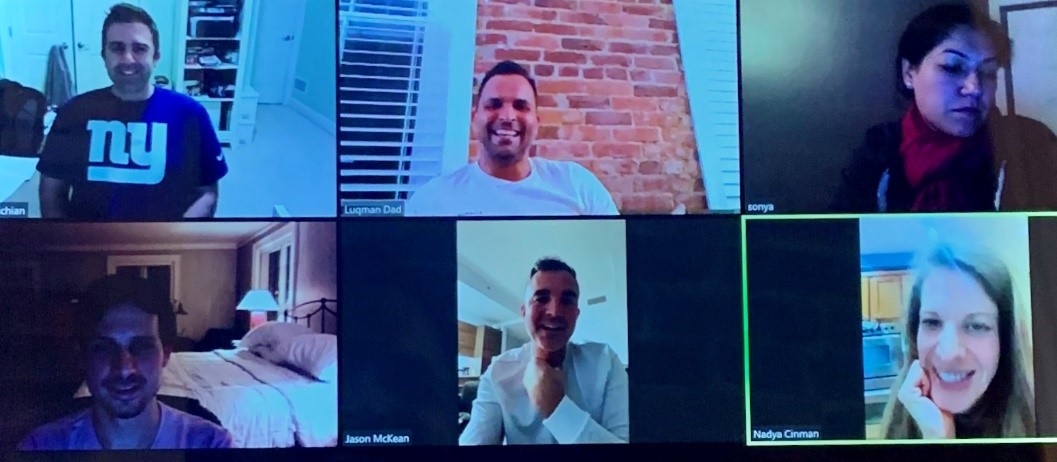
It seems not so long ago when on a late summer day back in 2002, the six of us collectively began our paths in medicine, taking the Hippocratic oath, swearing to uphold the highest ethical standards in our common goal to heal patients.
Flash forward 18 years. We currently practice across the United States in different specialties and practice environments, while remaining unified in our commitment to do what is best for our patients, while facing the insurmountable barriers of inadequate resources in this war against COVID-19.
We recently setup a Zoom call, hoping to offer mutual support, empathy, and reunite as friends of the BU community as we all battle the daily challenges brought forth by this pandemic. We share our perspective on the ongoing crisis relative to our common ground, having embarked on our privileged careers on the lawn juxtaposed between the schools of Medicine and Public Health at BU, taking one common oath to do no harm and do our best to help take care of our patients.
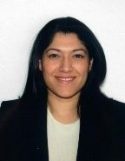 Sonya Dhar, MD, (CAS’98, GRS’00, MED’02, MED’06) Ophthalmologist and Residency Program Director Jamaica Hospital Medical Center, New York, N.Y. | sonya.dhar@gmail.com
Sonya Dhar, MD, (CAS’98, GRS’00, MED’02, MED’06) Ophthalmologist and Residency Program Director Jamaica Hospital Medical Center, New York, N.Y. | sonya.dhar@gmail.com
Today, Sonya is an Ophthalmologist in New York City where she serves as a Residency Director. Last month, many ophthalmology residents and attendings across the city were deployed to aid the Internal Medicine COVID-19 floors. Numerous subspecialists, including dermatologists, nephrologists and ENTs, have been called to serve during this pandemic. Sonya notes, “In NYC, despite the warnings, much of the public didn’t listen in time. She adds, “I worry about all healthcare workers. I worry about our residents. I worry about the public.” Taking a long breath, Sonya pauses, reflecting on the irony of the situation: “Many of my colleagues and I have done medical missions in other countries. Now we are being called to do a medical mission in our own city. We are all in this together.”
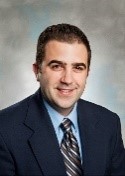 David Meguerdichian, MD (MED’02, MED’06) Emergency Medicine Physician, Brigham & Women’s Hospital, Boston, Mass. | dameguer@gmail.com
David Meguerdichian, MD (MED’02, MED’06) Emergency Medicine Physician, Brigham & Women’s Hospital, Boston, Mass. | dameguer@gmail.com
David is an Emergency Medicine Attending Physician in Boston. Given David’s risk of exposure to the virus, he self-quarantined, isolating himself from his loving wife and daughter, so that he may continue to fight on the front line. His wife is also an ER doctor and pregnant with their second child, and with this in mind, David must sleep in his basement for the next few months. While adhering to this oath putting his patients first, David remarks, “I won’t be able to hug my wife and daughter for a while.” With limited PPE, personal protective equipment, he knows the risk of exposing his loved ones is too high. As Boston braced for its surge, his department sent pizzas to NYC hospitals to show their support for their comrades.
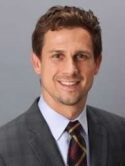 John Ingle, MD, (MED’06) Head of Voice Center, University of Rochester Medical Center, Rochester, N.Y. | john.ingle.md@gmail.com
John Ingle, MD, (MED’06) Head of Voice Center, University of Rochester Medical Center, Rochester, N.Y. | john.ingle.md@gmail.com
John is an ENT in Rochester, N.Y., specializing in voice, airway and swallowing disorders. He mentioned the importance of cancelling elective surgeries to free up hospital beds and reserving supplies: “A variety of urgent surgeries are still taking place in patients without COVID-19. These surgeries include those that most people don’t think of such as bleeding airway surgery, tracheostomy, head and neck cancer surgery, and draining neck infections. Many of these airway procedures are high-risk for exposure to COVID-19 so ENTs have to be very careful.” He further reported, “ENT attendings are performing these higher-risk procedures without residents, to limit exposure to the fewest number of people,” also adding that “it was also important to preserve N95 masks because every person involved needs one.”
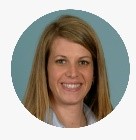 Nadya Cinman, MD, (MED’06, MED’02) Urologist, Oakland Medical Center, Oakland, Calif. | nadyacinman@yahoo.com
Nadya Cinman, MD, (MED’06, MED’02) Urologist, Oakland Medical Center, Oakland, Calif. | nadyacinman@yahoo.com
Nadya is a Reconstructive Urologist working in Oakland, Calif. Balancing her dual physician family and career has never been easy, but Nadya has devoted her time during the COVID-19 pandemic to address her patients with genitourinary cancers and other cases that cannot be delayed. “I go to work and come home. We have a rotation with our neighbors, to watch each other’s kids, so we can continue to work. No one goes outside unless it’s to get groceries. We committed to the early lockdown efforts mandated in California and want to keep everyone safe.” However, Nayda also contemplated how “for the first time in my practice, we are being asked to stratify the care needs of our patients. Who ought to be deemed as requiring care right now, and who ought to wait. And wait for how long?”
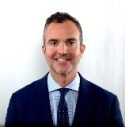 Jason McKean, MD, Chief of Orthopedics, Brookdale Hospital and Medical Center, Brooklyn, N.Y. | jasonmckean@gmail.com
Jason McKean, MD, Chief of Orthopedics, Brookdale Hospital and Medical Center, Brooklyn, N.Y. | jasonmckean@gmail.com
Jason is an Orthopedic Surgeon, specializing in trauma surgery in New York City. When prompted as to what incentive healthcare professionals had in staying in the trenches when they are not adequately provided with standard protective equipment, Jason stated quite frankly: “Well, I’ve never been without a mask. I’ve made sure I’ve had something. Sonya also. I chose trauma, and we knew if s*** got hectic, we would be in harm’s way. Despite the situation, I don’t feel it’s fair to tell patients ‘peace, I’m out.’ The trauma we get in Ortho is very complex and I know my partners are not comfortable doing it. I would just be putting the patients and my partners at a disadvantage.” Jason’s response reminds us all why medical students across the country take the oath each summer as they carry this on their respective journeys.
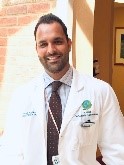 Luqman K. Dad, MD, (MED’06, CAS’99, MED’02) Radiation Oncologist, Anne Arundel Medical Center & Affiliate Partner Maryland Proton Treatment Center, Annapolis, Md.| luq.dad@gmail.com
Luqman K. Dad, MD, (MED’06, CAS’99, MED’02) Radiation Oncologist, Anne Arundel Medical Center & Affiliate Partner Maryland Proton Treatment Center, Annapolis, Md.| luq.dad@gmail.com
I am a Radiation Oncologist in a hospital-based community practice in Annapolis, Maryland, where many of my patients are at greatest risk given their challenged immune systems and the risks associated with asymptomatic community spread. Cancer does not take a back seat during this challenging time. Thanks to the recent expansion of Medicare telehealth benefits, my practice has integrated telemedicine to help meet the critical needs of the community we serve. On March 27, my hospital implemented a ‘focused universal precautions’ policy to help optimally protect both patients and healthcare workers. Across America, the root cause of the delay to incorporate such programs is clearly due to a vast shortage of adequate PPE supplies, despite our relatively robust economy and wealth of medical innovation and expertise.
As we approached the 40-minute limit on the free Zoom service, we all shared the sentiment that these are times when physicians must remain united, not only on the foundations of the Hippocratic oath, but also for protecting the rights of all healthcare workers, as this oath is not a one-way street. This summer, a new class of medical students will be entering our field. Our hope is that the lessons learned from our present battle with COVID-19 will ensure that this new class of doctors is afforded the right to practice medicine in an environment that supports maximal safety for both patients and providers alike. From our present experience, we clearly need more than just the Hippocratic oath to ensure that.
Submitted by Luqman K. Dad, MD (MED’06, CAS’99, MED’02)
View all posts